The right book can stay with you forever, especially one given as a thoughtfully chosen gift. Whether it’s your first childhood foray into fantasy, or a new adventure found later in life, these are the books that shape us as readers, and lead us to our next literary discoveries.
Below, some of the Tor.com staff remember the books that they’ve received that have gone on to shape (or reshape) their lives. What will you unwrap this year, and what paths will it lead you down? Let us know your own memorable book-gifting experiences in the comments!
The Hitchhiker’s Guide to the Galaxy by Douglas Adams
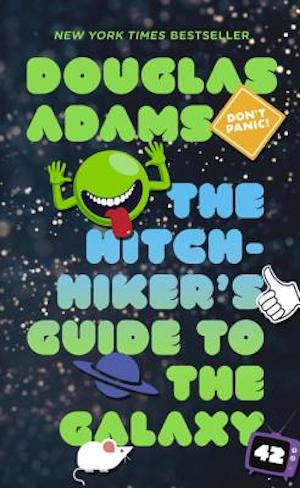
My dad was the sort of parent who never pushed his interests on me. He waited and watched and if he noticed that we happened to have something in common, he would broach the subject one afternoon. Which meant that he got a pleasant surprise when my SFF obsession got much more pronounced around age eight, and thought that it might be a good idea to hand over his battered old copy of The Hitchhiker’s Guide to the Galaxy. Not a gift, exactly. A bestowal.
Hitchhiker’s is a gateway book for a lot of early fans, of course, but this was an ace on my dad’s part due to how we spent the majority of my early childhood—trading movie impressions (usually of the Robin Williams and/or Monty Python variety) and generally trying to make each other giggle. Up until that point, I had no idea you could make prose funny. It was like having my head winched open, and dumping a bowl of sunshine into it. He handed me the book before a vacation, which meant that I wanted to spend all my time on a sandy beach reading—much to my mother’s chagrin—but that was nothing new in the history of my summer break habits. I read it cover to cover, demanded the next one, and memorized all my favorite exchanges verbatim.
To make my dad giggle, of course.
—Emmet
The Sparrow by Mary Doria Russell
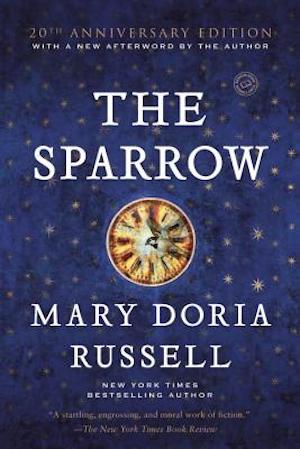
The Sparrow was one of the last books I received as a gift, before I began working in publishing and my loved ones assumed that I would want for neither books nor recommendations ever again. Maybe that’s part of why I remember so precisely picking it up under the Christmas tree in my childhood home, or my initial trepidation when my mother mentioned that her book club had read it. I doubted not her taste, but the taste of a group of moms who spent more time gossiping and drinking wine than analyzing the books—still fun, but I was surprised to hear that they had picked up a sci-fi novel from the ’90s.
That early-20s snobbishness kept me from reading The Sparrow for about six months, but I’ve since read the book at least four times—both cover to cover and a selection at a reading series a few years back. I revisited it this year, the 20th anniversary, to discuss it in conversation with Arrival about how human/alien gift-giving can be disastrous. One of the passages was a reading at my wedding. It’s one of those rare books that has everything: naturalistic characters who contain multitudes; an easy way in to space travel and time dilation for the less scientifically-minded like myself; humor, pathos, the ache of unrequited love and devastating horror in ways that don’t feel contrived. I get something different from it every time I read.
The biggest impact that The Sparrow has had on me is that it’s the book I most often recommend. It was one of the first pieces of media I pressed upon my partner in the first few months of dating, and it was his father’s first impression of me (which, considering that the man is very religious and the book has a very anti-faith ending, had me worried). But both parties loved it, and it’s become a frequent conversation topic that’s led us to share subsequent books: Ancillary Justice, The Three-Body Problem, The Left Hand of Darkness.
—Natalie
The True Confessions of Charlotte Doyle by Avi
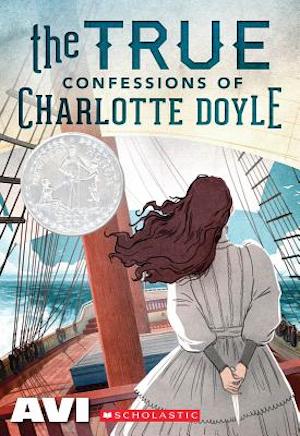
My elementary school librarian gave me The True Confessions of Charlotte Doyle to read when I was in fourth or fifth grade, so this wasn’t a book gift in the strictest sense of the word, but I’m going with it.
I’ve always been an avid reader, but not a reader who likes to reread books much, even when I was younger. The True Confessions of Charlotte Doyle is one of the few exceptions to this—I must have checked it out at least a dozen times that school year. It was a story about a well-to-do 13-year-old girl from the 1830s taking a ship from England to the United States. During that voyage, she sheds her constricting dresses, becomes a crew member on the ship, and is accused of murder, among other things.
I forget most of the plot, to be honest. But what I remember from this book, what I still think about regularly to this day, is how Charlotte ultimately shed her life as a “proper” lady and took to the high seas. She left the only world she knew, threw off the dictates that society placed on her, and became true to herself. That escape, that freedom Charlotte has at the end of the book stuck with me. I couldn’t articulate it then (or for decades after, really), but I felt just as trapped. Eventually, however, I broke free in my own way, and maybe I’ll give the book another reread this holiday season to see how Charlotte’s story resonates with me now.
—Vanessa
The More Than Complete Hitchhiker’s Guide by Douglas Adams
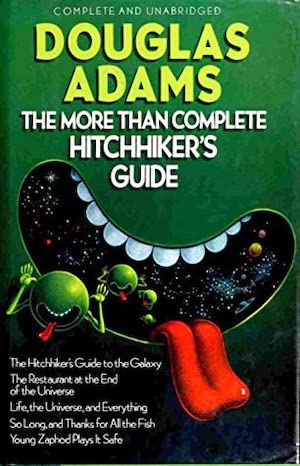
By the time I was in middle school, I was a pretty solid fantasy reader. I read The Lord of the Rings every year—my own pilgrimage to Mordor and out again—and spent all my birthday and Christmas Waldenbooks gift certificates on the fattest fantasy novels I could find. I read everything on my mom’s shelves that had an intriguing cover (Kathleen Sky’s Witchdame!) or a feisty, troubled young heroine (Jo Clayton’s Duel of Sorcery series!).
But I rarely picked out anything funny.
When my uncle sent me the leather-bound, gilt-edged More Than Complete Hitchhiker’s Guide, it wasn’t the first funny book he’d sent. (I read a lot of Xanth books. I’m not ashamed.) But it was funny science fiction, not fantasy. It took a while for me to commit to reading the whole thing, but I did, and my ideas about stories, about the way the galaxy might look, just bloomed. I’m a very visual reader; there are movies in my head that play whenever I think about a story I’ve read. And these movies looked different than anything I’d dreamt up before. People had fun in these stories. Adams’s sense of the absurd felt so familiar to me that it made the entire universe seem … accessible. And like a thing you could also laugh at, maybe. (Halfway through the book, I realized I’d heard my mother and stepfather listening to the radio production of Hitchhiker, years before. Once you’ve met Marvin, you don’t forget him.)
It’s hard to explain Adams to people who haven’t read him, to explain that you can laugh your face off and also feel like you’re reading some impossible truth about life (the universe, and everything). Adams informs my sense of humor, my references, my ideas about the world(s), in a way that’s somehow more down-to-earth than all the epic fantasy I adore. When I was a kid, those books felt like dreams of living in a different world. Hitchhiker felt like it might know something about being a grownup, here, on a mostly harmless planet.
—Molly
Jim Henson: The Biography by Brian Jay Jones
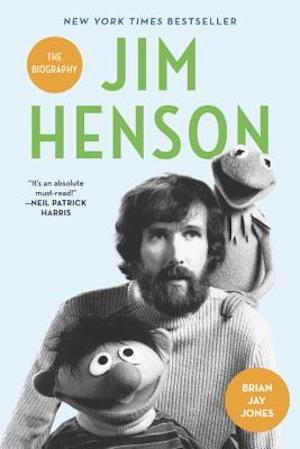
I tend not to receive books as gifts. I think because between the books I buy, the ones I borrow, the ones I’m sent to review, the ones I have as pdfs from assorted ediTors—books are the only thing, other than food and liquor, that I collect for myself. Given that, I’m going to talk about a book I bought as a gift to myself, with the caveat that I have not finished this book, and probably never will.
The book in question? Brian Jay Jones’ Jim Henson: The Biography. In the interest of returning to childhood I bought it with Christmas money my parents sent me. On the 26th, family obligations completed for the moment and New Year’s Eve but a distant glow on the horizon, I embarked on what I can only refer to as a truly childlike reading experience: I stretched out on my bed and fell into that book, for hours at a time, coming up only for the most necessary of biological functions. As a person who reads professionally, losing myself in something I didn’t have to review or critique or discuss felt incredible, and I read almost the entire 490-page-long book by midday on the 27th.
But about that “almost”—we all know how the story ends, yes? Jim Henson’s illness, the way-too-early death, the funeral you can watch on Youtube if you want to be unable to function for the rest of the day. So when I got to Chapter 16, “Just One Person”, I gave myself the greatest gift of all and stopped reading.
—Leah
The Alchemyst by Michael Scott
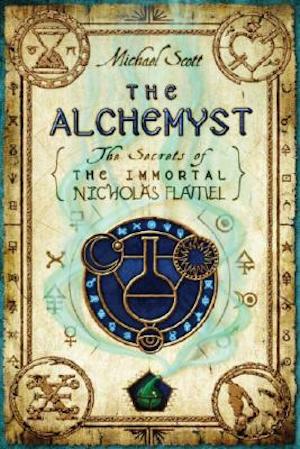
After years of gifting my much-younger cousin all of the entry-level SFF books that I had loved at her age (the usual classics from The Phantom Tollbooth to Narnia, and the comparatively newer Series of Unfortunate Events), she turned around and surprised me at the age of eleven with the first book in her favorite new series, The Secrets of the Immortal Nicholas Flamel. She was on the cusp of crossing over from middle-grade to young adult stories, and she was inviting me along for the ride. And honestly I was a little snobby about it at first, hung up on the formulaic set-up—but eventually I got caught up in the fun of the adventure and mythological references. More importantly, reading it reminded me that there was a whole world of new potential entry points to SFF that I was overlooking by simply replicating my old reading list. The Alchemyst helped redirect me to the thriving YA genre, experiencing it with fresh eyes alongside my cousin.
—Sarah
The Neverending Story by Michael Ende
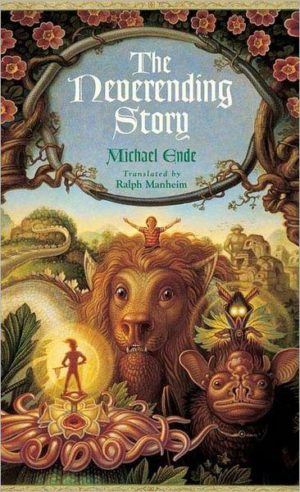
One of my most vivid book-related memories goes back to the first time I read The Neverending Story by Michael Ende. Some time between its 1979 publication and the 1984 release of the movie, my parents gave me a copy of the novel for my birthday. I’d just turned 10 and didn’t speak or read English (or German) yet, so this was a Dutch translation—a beautiful hardcover edition with a big AURYN in relief on the cover and text printed in two colors, red for the part of the story set in our world, and blue for the parts set in Fantastica.
I was, much like main character Bastian Balthazar Bux, a shy and bookish kid. I immediately identified. To say I got sucked into The Neverending Story would be an epic understatement. What happened to me was probably closer to what Bastian experiences in the story: I found a quiet place to read, and I read, and read, pretty much nonstop until I’d turned the final page. The next morning, my parents found me still awake; I’d read through the night.
At ten years old, I obviously wasn’t familiar with metafiction. Bastian reads the book and thinks it’s just a story, until it becomes clear that it isn’t. Events in the green-printed “fictional” sections of the book begin to impinge on the red-printed “real” world. I can still remember the chill I felt when I realized what was happening. The fact that the book I held in my hands looked exactly like the fictional book Bastian reads made it even more uncanny.
The second half of the novel was also the first time I experienced seeing a character I loved and identified with turn into someone completely different and much less likable. And the first time such a character started losing memories and basically losing himself. Heady stuff for a ten year old.
Of all the many books I’ve been gifted in my life, The Neverending Story is still one of the most memorable. In some ways, I’ve been chasing that same reading experience ever since.
—Stefan
An earlier version of this article was published in December 2016.










